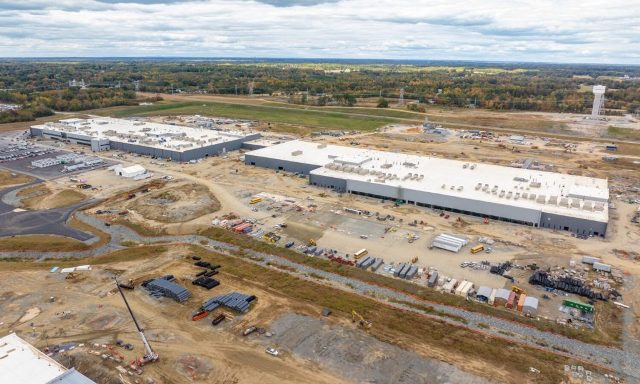Toyota Motor has announced a significant expansion of its electric-vehicle (EV) battery manufacturing facility in North Carolina, with an additional $8 billion in investment and the creation of approximately 3,000 jobs.
This move is part of Toyota’s commitment to electrify its vehicle lineup and stay competitive in the rapidly evolving automotive industry.
Toyota has put more than 24.6 million hybrid, plug-in hybrid, fuel cell and battery electric vehicles on the road globally. By 2025, the company plans to have an electrified option available for every Toyota and Lexus model globally.
The expansion will bring Toyota’s total investment in the North Carolina plant to approximately $13.9 billion and will substantially increase its workforce, with more than 5,000 jobs expected to be generated. Toyota has ambitious plans to offer electrified options for all its vehicle models by 2025, and this latest investment demonstrates its dedication to achieving this goal.
Several other automakers, including Ford Motor and General Motors, have been aggressively increasing their electric vehicle production to catch up with the industry leader, Tesla. However, the path to electrification has been marked by challenges, including expensive contract agreements with the United Auto Workers union that led to scaled-back investment plans for both Ford and GM, Reuters news report said.
Toyota had initially focused on hybrid and hydrogen fuel cell vehicles rather than battery electric vehicles (BEVs). However, the company recently announced a strategic shift, with plans to commercialize advanced batteries and incorporate die-casting technology pioneered by Tesla. Toyota’s decision to invest heavily in BEVs is indicative of the changing dynamics within the automotive sector.
The North Carolina facility is scheduled to commence operations in 2025 and is set to become Toyota’s first automotive battery plant on a global scale. It will feature six battery production lines, four of which will support hybrid vehicles like the iconic Prius, and two additional lines dedicated to battery electric vehicles.
North Carolina is rapidly emerging as a leading hub for electric vehicle and battery manufacturing. Other companies, including Redwood Materials and Vietnam’s Vinfast, have also announced plans for new investments in the state. Additionally, India’s Epsilon Advanced Materials (EAM) recently revealed plans to open a $650 million battery plant in North Carolina in 2026. This facility could potentially supply up to 1.1 million electric vehicles in the United States, further contributing to the state’s growing role in the clean energy economy.
North Carolina Governor Roy Cooper expressed his enthusiasm for Toyota’s increased investment, highlighting the positive impact on the state’s transition to a clean energy economy. Toyota’s expansion not only represents a significant economic opportunity but also aligns with the broader shift towards sustainable transportation and reducing carbon emissions.

